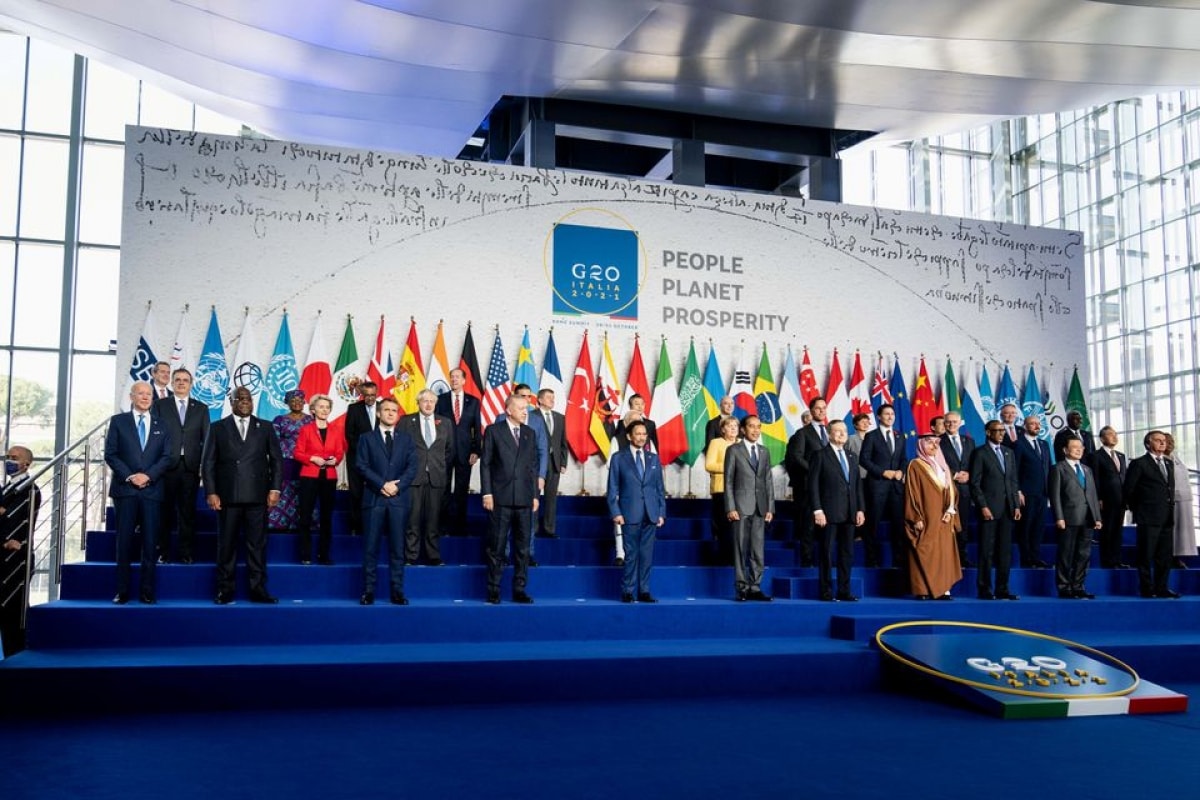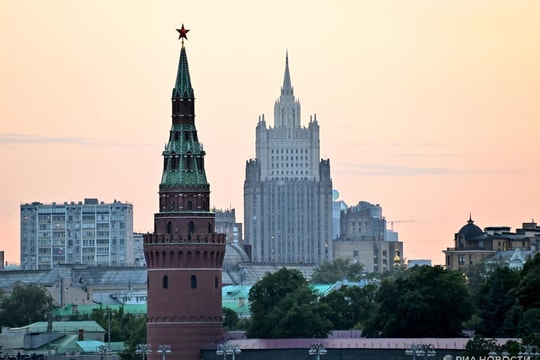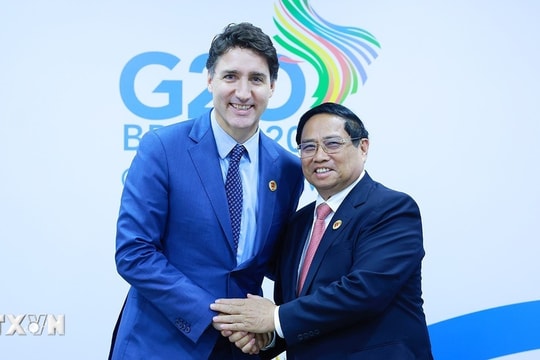G20 reaches historic deal on tariffs, pledges to provide Covid-19 vaccines to poor countries
G20 leaders on October 30 agreed to adopt a global minimum tax on multinational companies to prevent them from evading taxes in "tax havens", and pledged to provide more Covid-19 vaccines to poor countries.
Join the first in-person summit in 2 years,G20 leadershas backed an extension of debt relief for poor countries and pledged to vaccinate 70% of the world's population against the Covid-19 pandemic by mid-2022. But on the eve of the UN COP26 climate conference, the G20 appears to have struggled to agree on the drastic measures that global scientists say are needed to halt global warming.

Italy, the host country of this year's G20 Summit, put health and the economy at the top of the agenda on the first day of the meeting, while also making efforts to organize discussions on combating climate change on October 31. Speaking at the opening ceremony of the G20 Summit, Italian Prime Minister Mario Draghi said that governments must work together to address major global challenges, from the Covid-19 pandemic, climate change to fair and equal taxation.
Among the deals being hammered out is a deal on corporate tax that is being hailed as evidence of a multilateral effort, with large corporations facing a minimum 15% tax rate wherever they operate from 2023, which would prevent them from trying to avoid tax in offshore holdings.
“This is more than just a tax deal. It’s diplomacy that will reshape the global economy and deliver for our people,” US President Joe Biden wrote on Twitter.
With the world reeling from rising energy prices and prolonged supply chain disruptions, Mr. Biden is expected to urge G20 energy suppliers, especially Russia and Saudi Arabia, to boost production to ensure a stronger global economic recovery, a senior U.S. administration official said.
A draft communique seen by Reuters said the G20 would step up efforts to keep global temperatures below 1.5 degrees Celsius, a level scientists say is needed to avoid dangerous climate change patterns. The draft stressed the need for countries to step up plans to reduce greenhouse gas emissions, but gave few details on how to do so. In addition, leaders are expected to pledge to stop funding coal-fired power generation by the end of this year and make every effort to prevent the construction of new coal-fired power plants by the end of the 2030s./.






